Introduction
Music education analysis is aimed at the experience of in-service teachers pursuing master’s degree through web-based learning.
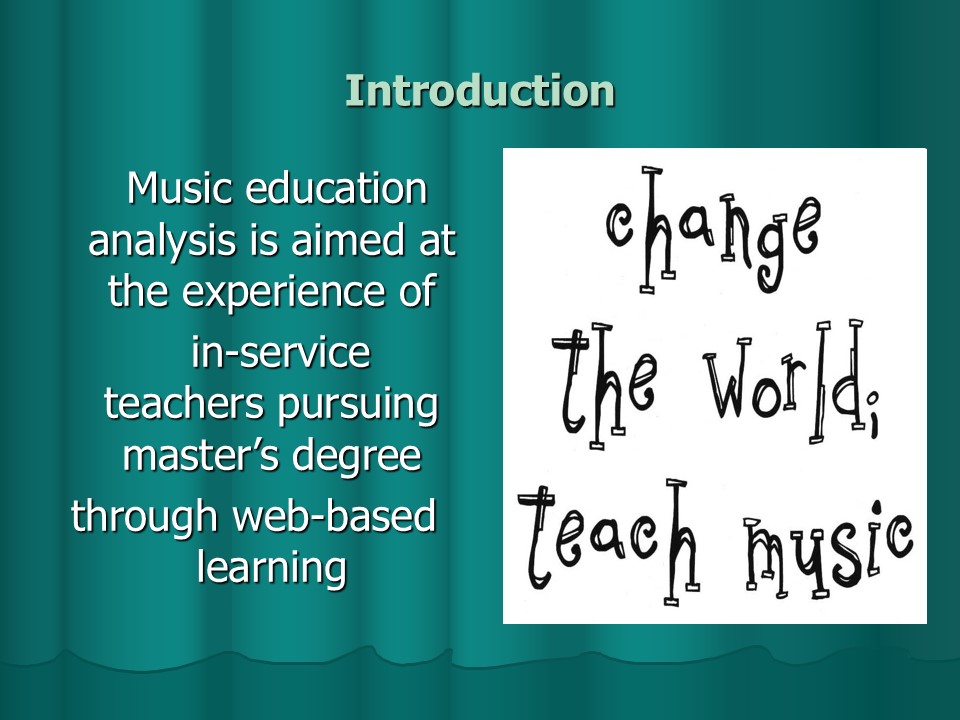
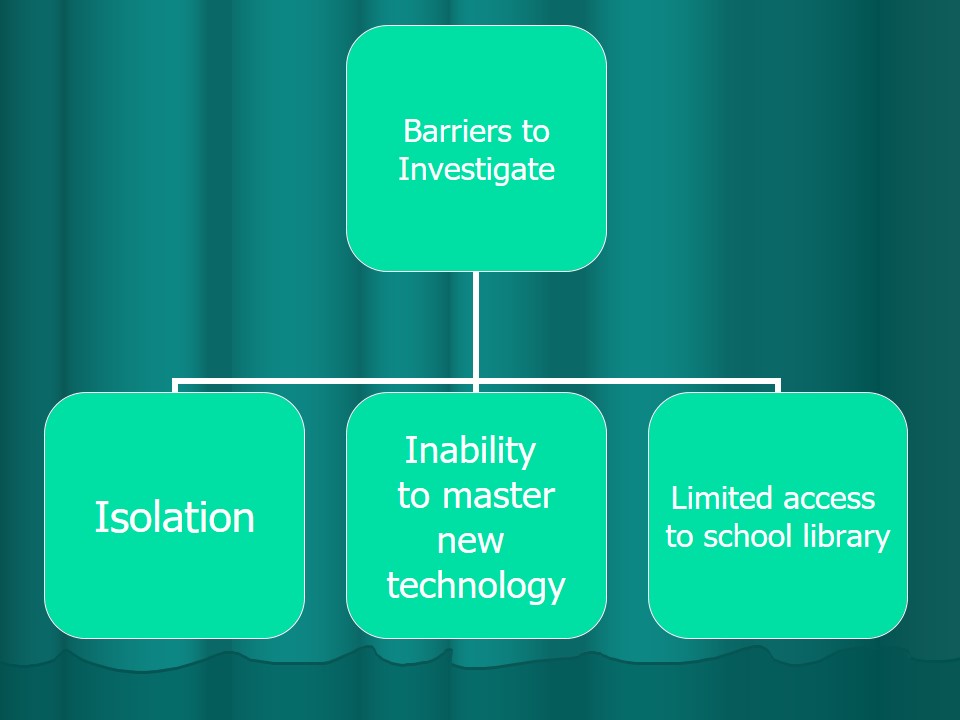
Aims
- To identify learner’s experience and characteristics of web-based learners;
- To examine the perception of online learners ;
- To investigate the obstacles the online learners.
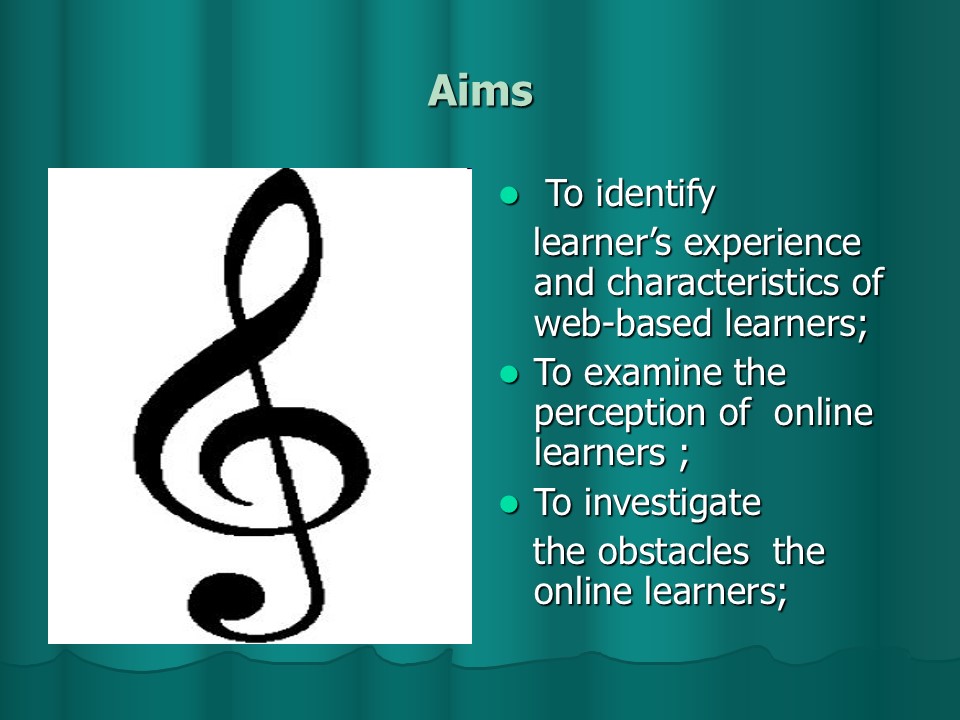
Research methodology
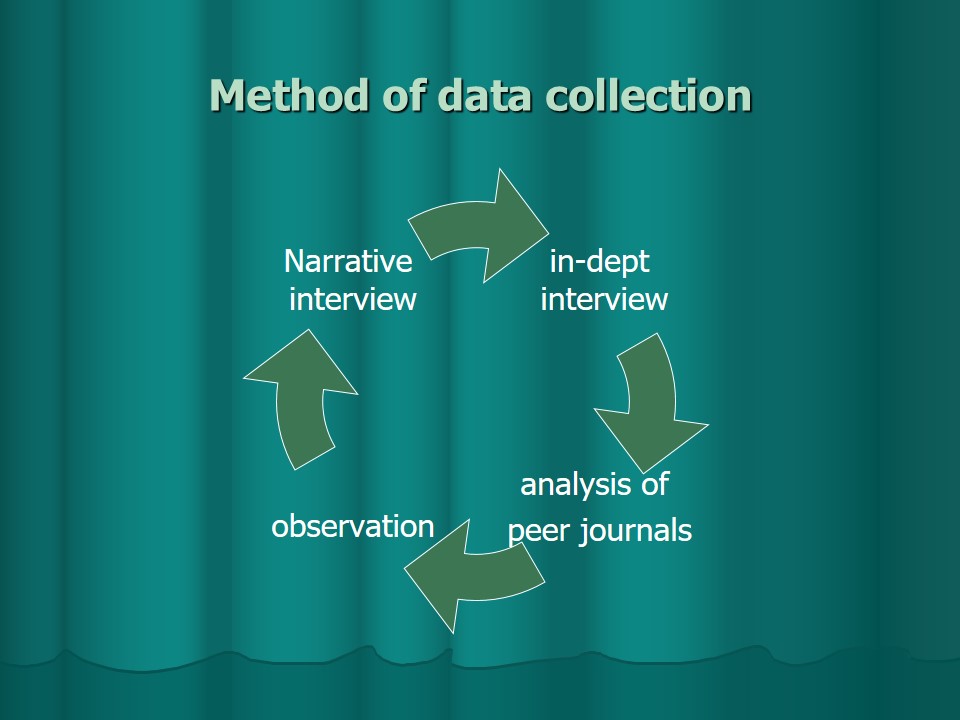
Data analysis
Data analysis is essential to ensure high level of accuracy for the study and data credibility achievement.
- Data Analysis:
- Reliability;
- Credibility;
- Validity.
Goals → Mistakes and Errors Correction.
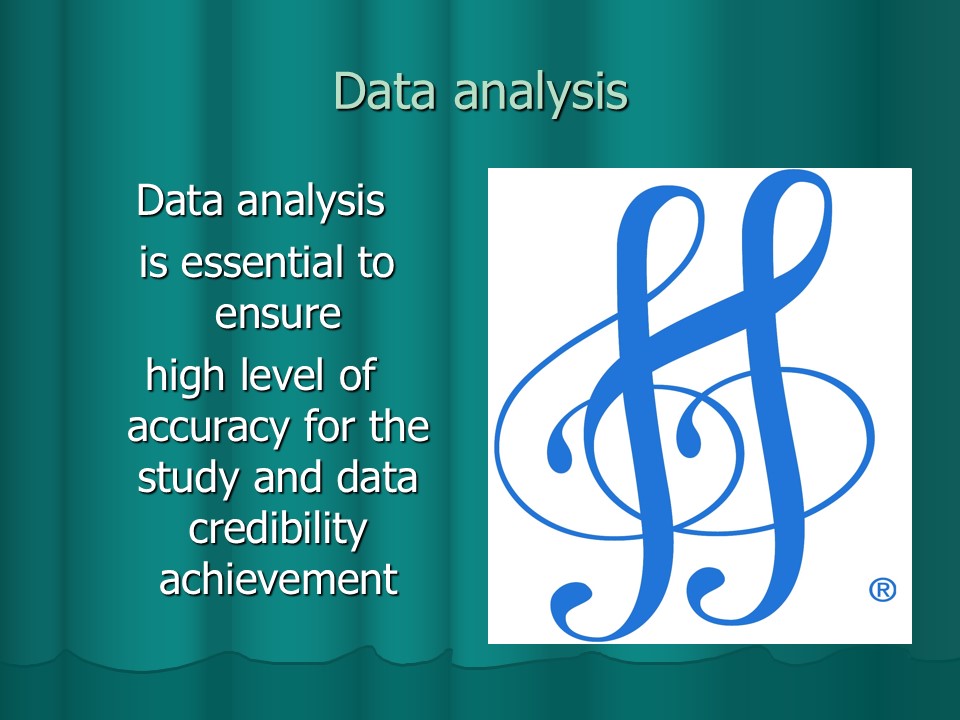
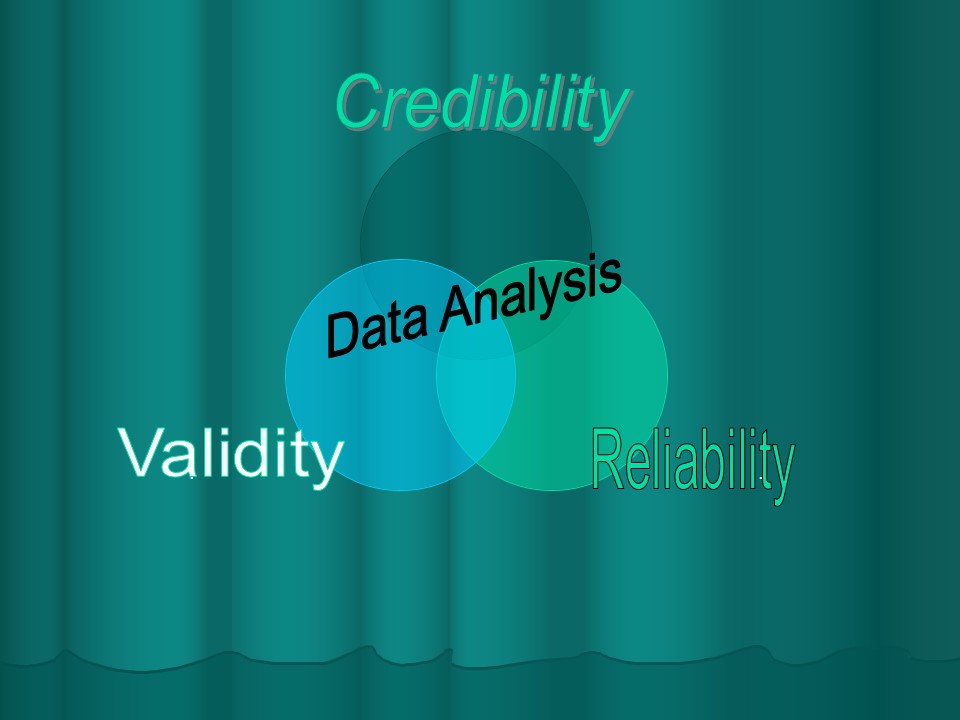
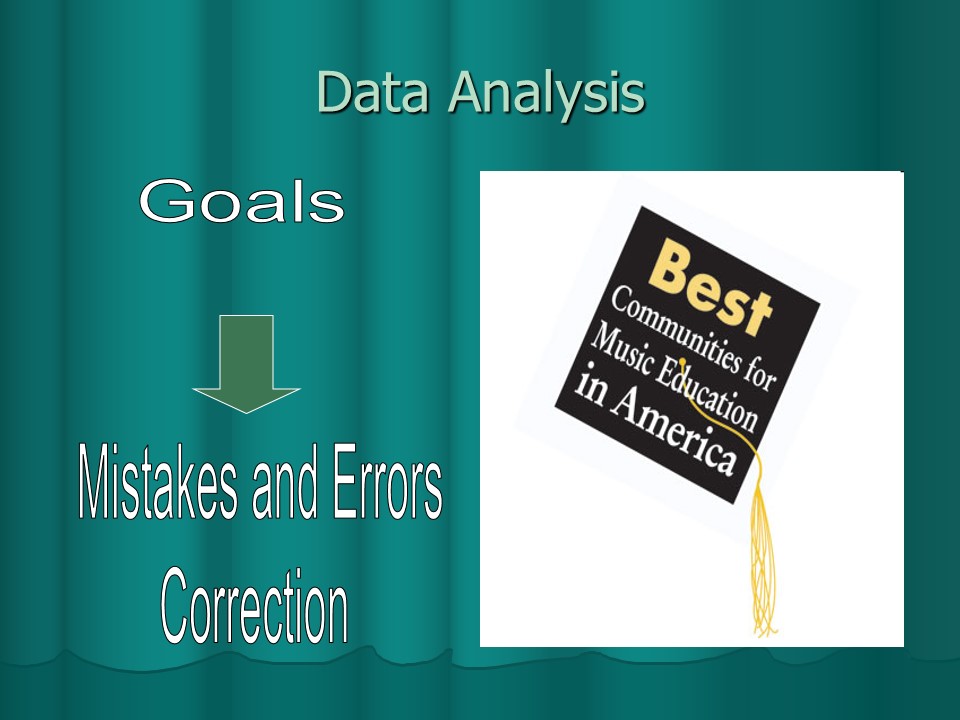
Study Outcomes
The outcome → fill the gap resulting from lack of research paper on the experience of in-service teachers pursuing master’s degree in music education through web-based learning.
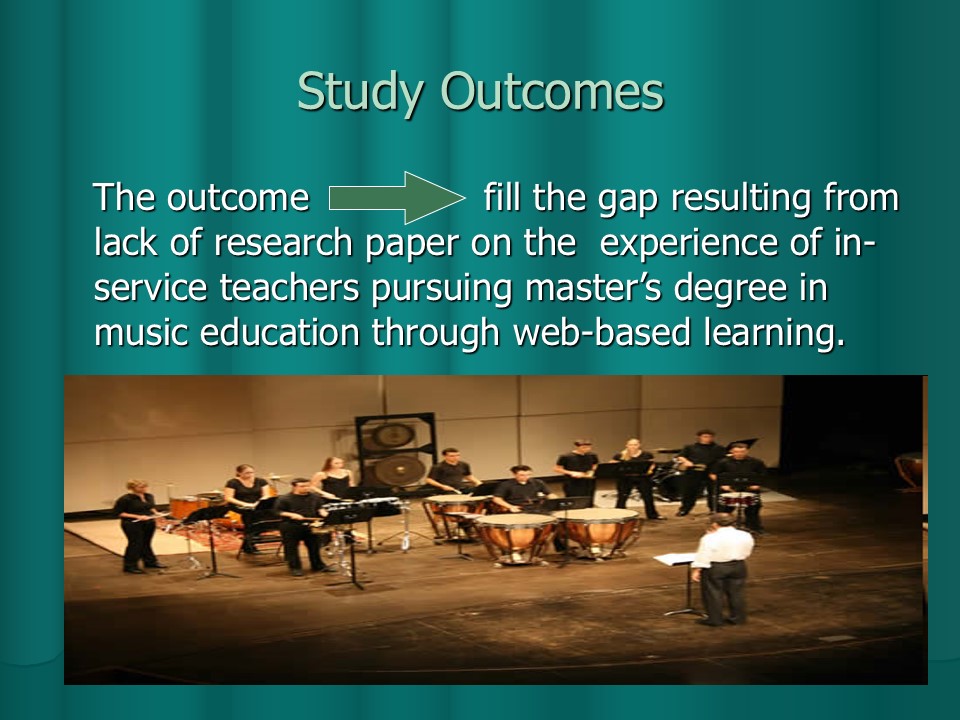
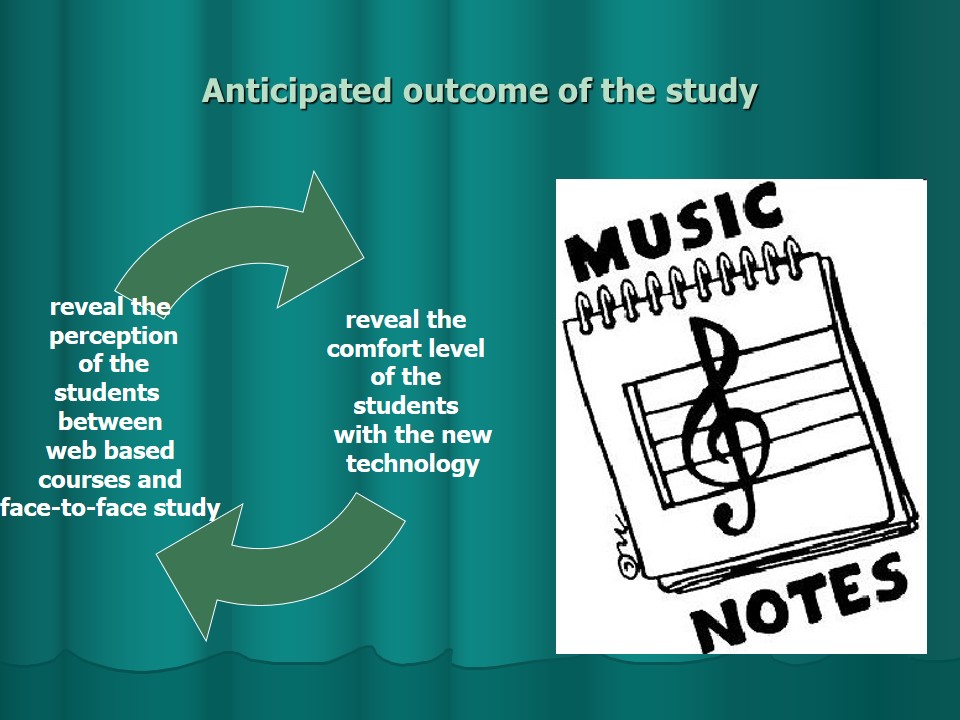
Potential Limitation
The problem of data collection ↔ scanty academic literatures that cover this study → encounter problem in securing data, and academic literatures to achieve research aims and objectives.
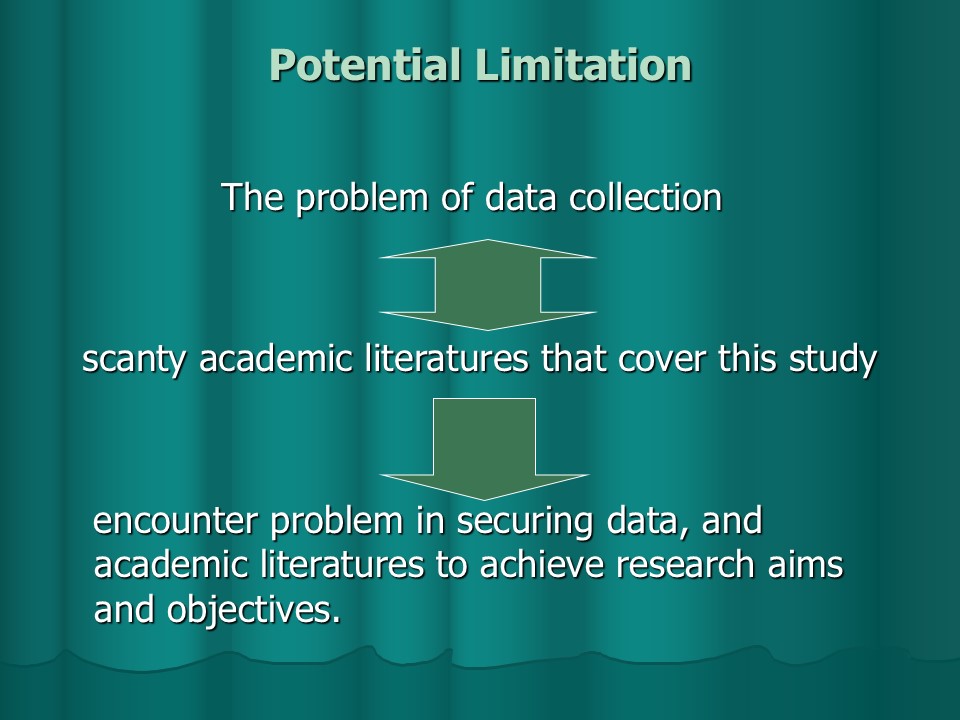
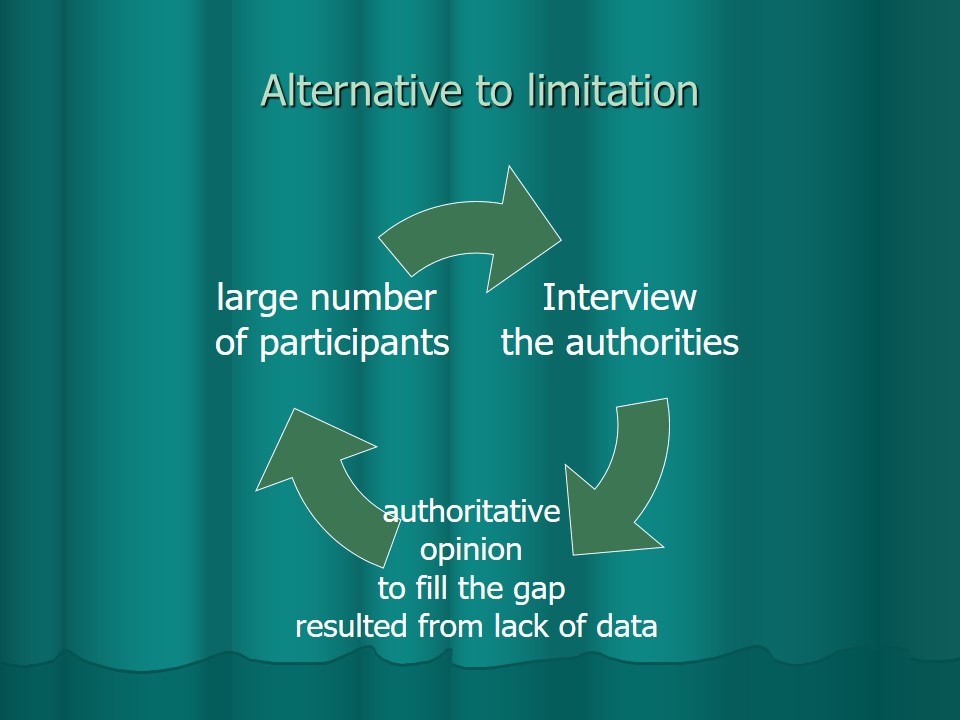
Conclusion
The proposal intends to enhance the greater understanding of the university community, prospective students, and government on the experience of in-service teachers pursuing master’s degree in music education through web-based learning.
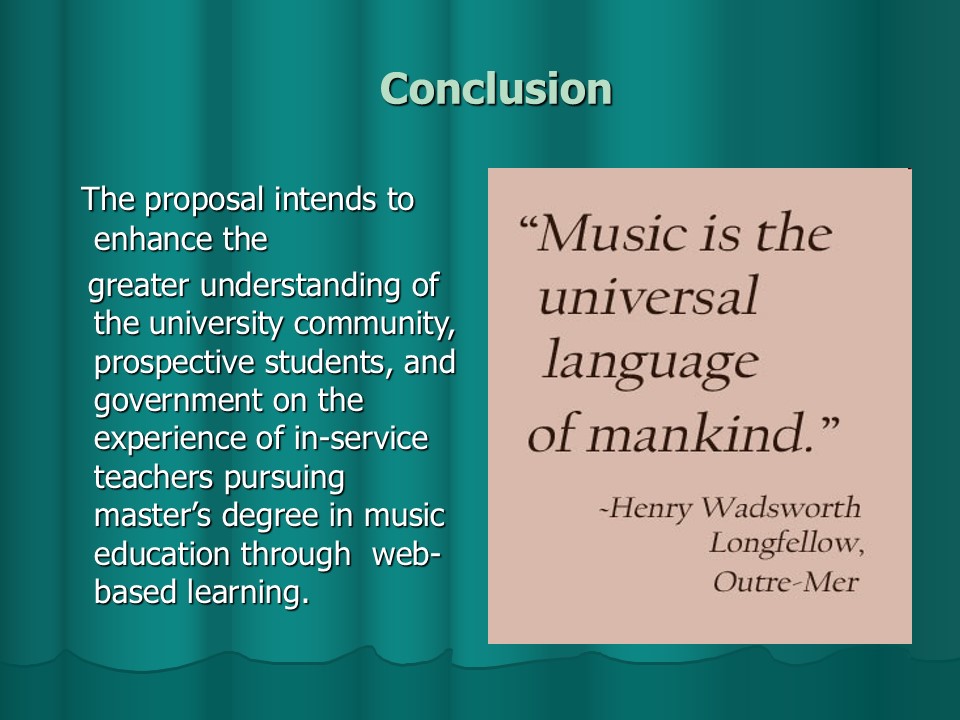
List of references
Cohen, D., & Crabtree, B. (2008). Evaluative criteria for qualitative research in health care: Controversies and recommendations. Annals of Family Medicine. 6(4), 331-339.
Pribesh, S., Dickinson, G. K., & Bucher, K. T. (2006). A comparison of online and face to-face cohorts in a school library media specialist graduate program: A preliminary study. Journal of Education for Library and Information Science, 47(4), 303-323.
Trochim, W. M. K., & Donnelly, J. P. (2007). Research Methods Knowledge Base. Mason, OH: Thomson Custom Pub.
Surveypro, (2009). Reporting Survey Results. Web.
Trochim, W. M. K., & Donnelly, J. P. (2007). Research Methods Knowledge Base. Mason, OH: Thomson Custom Pub.